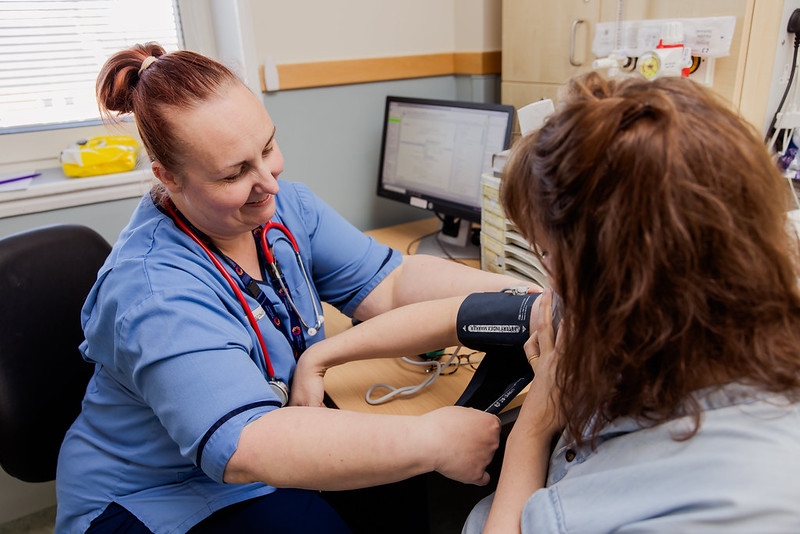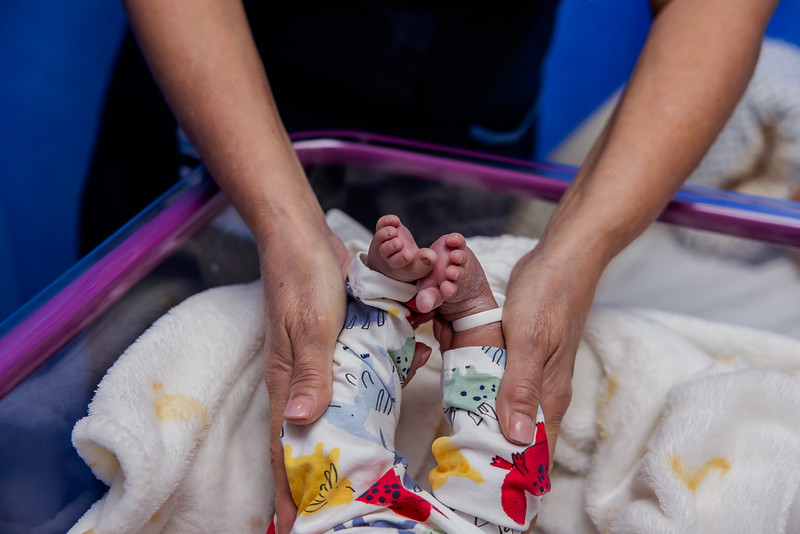Breastfeeding facilities for midwives and midwifery support workers (MSWs) returning to work need urgent improvement, according to a new survey by the Royal College of Midwives (RCM).
Midwives and MSWs face huge barriers to breastfeeding or expressing milk while at work, including having no suitable places to feed or express, a lack of time to do so and nowhere to store the milk safely. If the NHS isn’t providing these facilities, it makes it vastly harder for much needed maternity staff to return to work, which in turn piles more pressure on already overstretched services in the NHS.
The survey found a variation of facilities. Some Trusts and Boards take great care to ensure midwives and MSWs have what they need to return to work. Sherwood Forest, for example, installed a specialist breastfeeding pod that both visitors and staff can use, while Birmingham Women’s Hospital make sure discussing feeding and what flexibility maternity staff require is a central part of their return to work conversation.
Sadly this is not the case across all Trusts and Boards. While 62% of midwives and MSWs surveyed said they had facilities to breastfeed and 70% to express, around four in 10 had no dedicated area or specific facilities for them to do so while at work. This is even more shocking when noting that, of the facilities available, only half of respondents felt that they were fit for purpose. Appallingly five per cent said they were forced to use a toilet or cloakroom, while others reported that there were no other options but to go and to sit in their car.
Commenting on the survey findings RCM Health and Safety Advisor, Lesley Wood said: “The findings paint a troubling picture for maternity staff as they try to breastfeed or express while at work. While there are clearly numerous examples of good practice and support in NHS workplaces across the UK, when you have staff having to feed their babies in toilets or a car park, there is clearly a fundamental problem. This might have been the experience of a small minority, but even one is too many, no-one should feel this is what they have to do.”
For midwives and MSWs working outside hospitals and in rural areas the picture is equally as challenging. Over a third said that the nearest facilities were not near enough for them to access. Many of them can’t even use the facilities in the areas they work as they aren’t suitable for them. Lack of time to feed and express is clearly a huge problem too, with 35% saying they were not supported or didn’t have enough time to be able to do so.
Lesley added: “When you work in maternity services, people would understandably expect your workplace to be the one of the most supportive around all things pregnancy and breastfeeding. Yet some members reported giving up breastfeeding altogether, with many saying they felt stress, anxiety, and guilt as a result. At a time when there is a shortage of around 2500 midwives in England alone, we need the midwives we have back in the workforce, not worrying about when and where they are going to feed their own babies. Of course, it’s important to note that this isn’t the experience everywhere. We know that many employers try their best to support returning mothers and it’s been pleasing to see really positive initiatives in some NHS Trusts and Boards. We know it can be done, but this needs to be replicated everywhere.”
Notes:
The RCM surveyed health and safety and learning reps from across the UK.
The RCM has information and resources to help you understand your rights and negotiate with your employer. And don’t forget, RCM workplace representatives are really well-placed to support you on this and many other issues. Understanding your rights can be found here
i-learn modules ‘Understanding pregnancy and maternity rights at work’ and ‘tongue tie’ can be found here
You can contact your RCM Workplace representative, Regional/National Officer organiser for support – please call RCM Connect 0300 303 0444.


